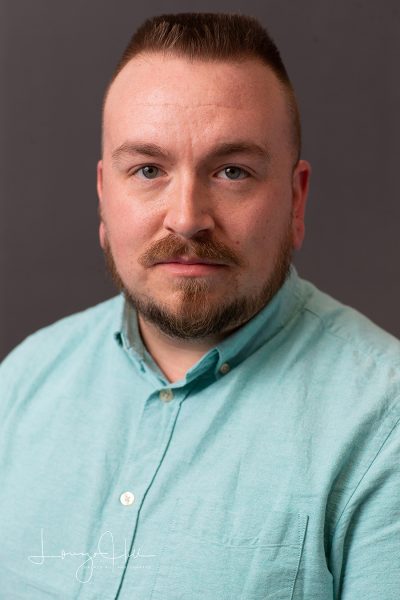
The Colleges of Computing and Engineering invite the campus community to a lecture by faculty candidate Jean Hardy, Monday, February 3, 2020, at 3:00 p.m., in EERC 214. Hardy’s talk is titled “What does community-driven technological development look like in rural Michigan?”
Hardy is PhD candidate and Rackham Merit Fellow in the University of Michigan (UM) School of Information. His research uses ethnographic and participatory design methods to understand how people use information and communication technologies for community formation and economic development in the rural Midwestern United States.
He is the co-organizer of UM’s Rural America Working Group and is affiliated with the UM Program in Science, Technology, and Society. Hardy’s formative work in rural computing has been published in Information, Communication, & Society and the Proceedings of the ACM on Human-Computer Interaction. He was awarded Best Paper Honorable Mention Awards at CHI 2016 and CSCW 2017, and a Best Provocation award at the 2019 ACM Conference on Designing Interactive Systems.
Lecture Abstract: The growth of the digital economy and the adoption of digital technologies continue to be widely regarded as opportunities to shift economic prospects, invigorate communities, and have transformative effects on society as we know it. But, digital technology, and the infrastructure that supports it, is largely designed and built for urban assumptions of scale, connectivity, and density. This presentation asks, what does digital technology and infrastructure look like when it leaves the urban and enters the rural, and how do we respond to the unique digital needs and aspirations of people living in rural communities?
Drawing from ethnographic and participatory design research in the Upper Peninsula of Michigan, I show how assumptions of growth and scalability built into contemporary social technologies do not reflect the reality of rural communities. I demonstrate how community-based research methods can be used to better understand the aspirations and needs of the people living in rural areas. I argue that the corporate obsession with scalability in contemporary social technologies misplaces opportunity for creative and unique digital tools that can engender a diverse future rural society.